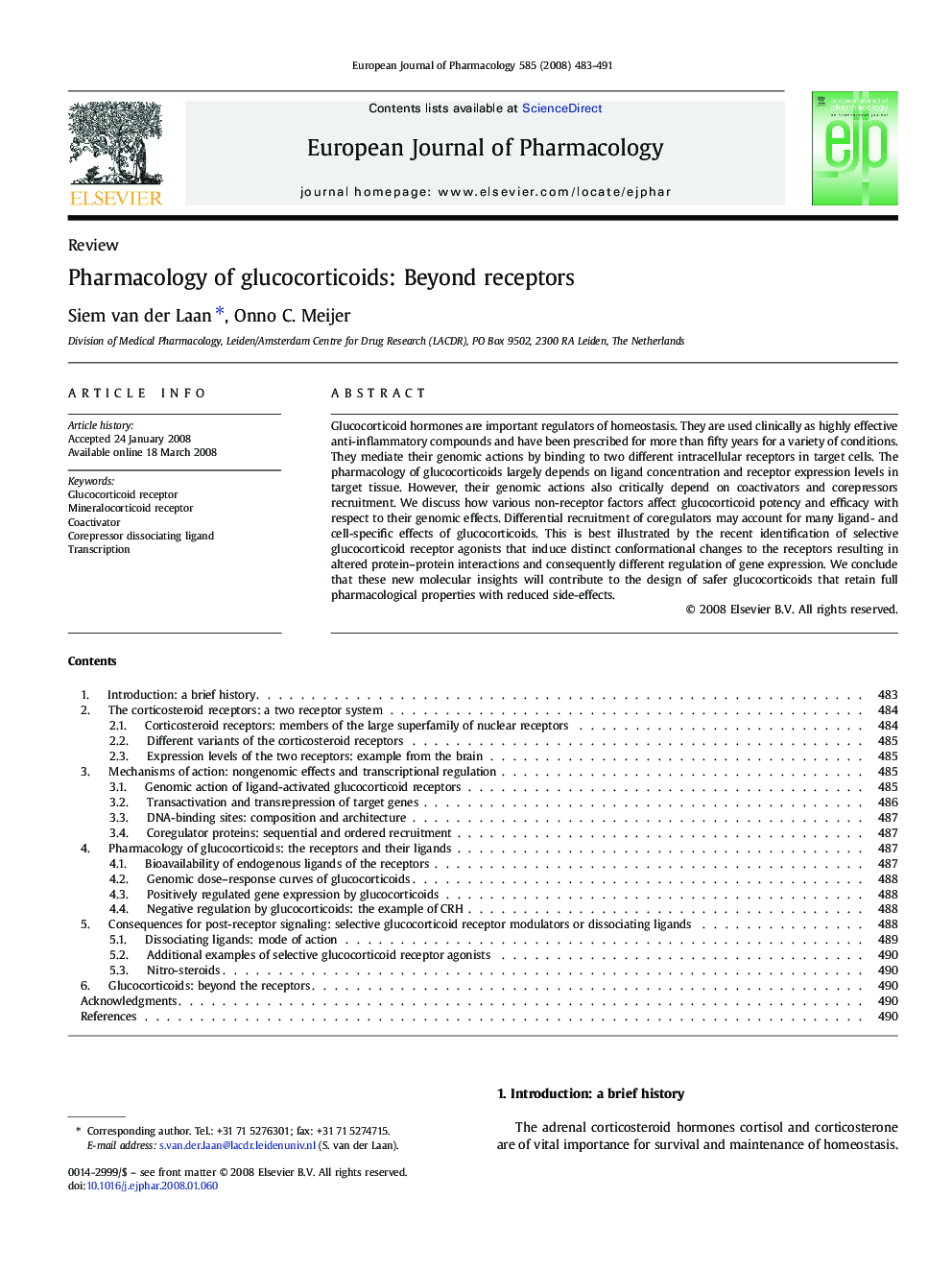| Article ID | Journal | Published Year | Pages | File Type |
|---|---|---|---|---|
| 2535164 | European Journal of Pharmacology | 2008 | 9 Pages |
Glucocorticoid hormones are important regulators of homeostasis. They are used clinically as highly effective anti-inflammatory compounds and have been prescribed for more than fifty years for a variety of conditions. They mediate their genomic actions by binding to two different intracellular receptors in target cells. The pharmacology of glucocorticoids largely depends on ligand concentration and receptor expression levels in target tissue. However, their genomic actions also critically depend on coactivators and corepressors recruitment. We discuss how various non-receptor factors affect glucocorticoid potency and efficacy with respect to their genomic effects. Differential recruitment of coregulators may account for many ligand- and cell-specific effects of glucocorticoids. This is best illustrated by the recent identification of selective glucocorticoid receptor agonists that induce distinct conformational changes to the receptors resulting in altered protein–protein interactions and consequently different regulation of gene expression. We conclude that these new molecular insights will contribute to the design of safer glucocorticoids that retain full pharmacological properties with reduced side-effects.
